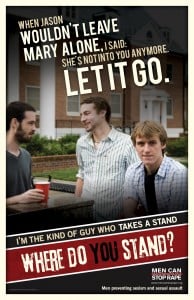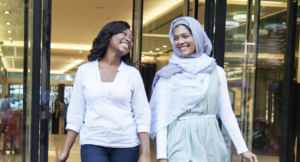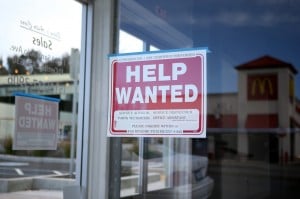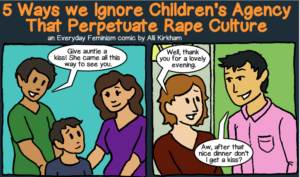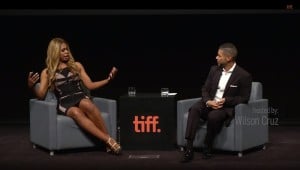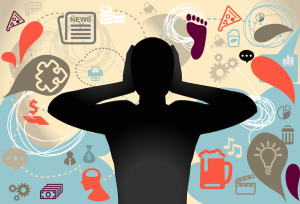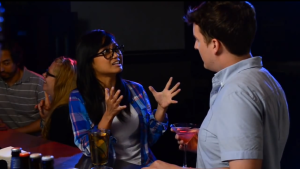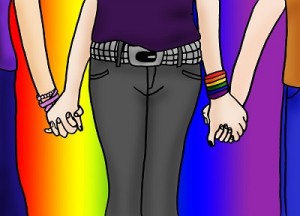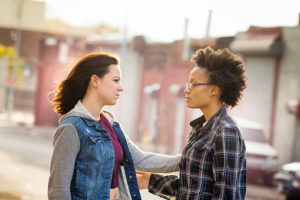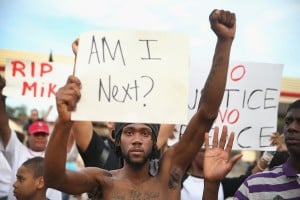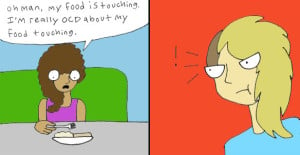Sy: I first went to my first GSA. I was surrounded by so many other people who had similar identities to me. It made me feel like I wasn’t alone and isolated like I am in normal communities.
Speaker 2: Hey, what’s up guys? I’m off to talk to the first GSA ever North of 60 and here in the Yukon at F.H. Collins High School. Let’s go!
I’ve been really curious about GSAs because I’ve never had one. Never, that was just not a thing. I wish I did because I feel like if I had a space where it was cool to go hang out with people just to talk about gender and sexuality, it would have been a huge step. As a result, talking about sexuality and gender and LGBTQ rights has just been like a big part of my passion, which is what brought me here to White Horse. I heard that F.H. Collins has started the first GSA North of 60. That’s sick!
How did that come to be? What’s the background of the GSA here?
Loughran: I think it started in 2010. It’s been about 6 years. Somewhere in its earlier stages it won an award for being …
Speaker 2: Like the only GSA for like kicking ass.
Loughran: The only GSA up here. It was great. Rick Mercer gave us a shout out on his show. I’m like, “Wow! This random little town up way north that nobody knows exists is winning a big award for being so inclusive.”
Speaker 2: How would you guys define or describe what a GSA is and what it does? What’s its purpose?
Mercedes: To me, GSA is a place, it’s not just for gay people, or it’s not just for straight people. It’s for anybody and everybody to come together and to realize that equality is needed always. It’s not that new things are being invented, but it’s that people are finally shining light on everybody’s personal sexualities.
Sy: I think for me, when I was coming to terms with my identity, the only thing I wanted to do was to be surrounded by people who were like me. When I first went to my first GSA, I was surrounded by so many other people who had similar identities to me. It made me feel like I wasn’t alone and isolated like I am in normal communities.
Loughran: Just everybody goes and we just go and we just sit there and talk with each other. We just don’t pay attention to who we all are in terms of sexuality or gender. It’s just we go and just have a good time with each other and then, we’ll think like, “Okay. What can we do for the community to raise awareness that we’re here and we exist?” A lot of the time, we just hang out with each other.
Speaker 2: What happens at a GSA meeting. I’ve never been to a GSA meeting.
Olivia: Sometimes we fund raise. Sometimes we hold events. Sometimes we just hang out and talk and talk about our days. Like Loughran said, it’s just nice to not have any sort of pressure. Everybody’s just like completely themselves at GSA.
Speaker 2: Are you guys comfortable in sharing a bit of your coming out experience and how you identify in terms of gender pronouns? What is your sexual and gender identities?
Mercedes: I have 4 gay parents, which is a long story on how all that dynamics works. I identify as pan-sexual. It’s basically you don’t care what’s in your pants. Growing up I actually felt a bit of pressure not being either straight or a lesbian. Coming out was hard for me. A lot of people didn’t understand why it was hard for me. They were like, “Well, your parents will accept you because they’re gay.” The reason why is because I was afraid that they wouldn’t accept the fact that I’m not gay and I’m not straight. I’m somewhere in between. That was something that was difficult for me to come to terms with. I feel like I wish I had more courage at the beginning. If I had more courage, I could have been happier a lot sooner.
Speaker 2: It’s like, the generation before you was like, “I’m gay.” Their parents were like, “What? What?” It’s still cool that even with gay parents you can be like, “I’m pan-sexual,” and they’re like, “What?”
Mercedes: What’s that?
Sy: When I first started questioning myself I was really, really little. I always leaned towards more masculine things. The “boy toys”. Wow, that sounds so bad. Like the GI Joe figures were my favorite. I loved little race cars and all that kind of stuff. As I grew older, the more I wanted to be called a him. When I went to Disneyland with my dad, the receptionist in the hotel mistook me for a boy. I told my dad, “If this is the land where dreams come true, why can’t I be a boy?”
When I found out I was trans, I wanted to get right on it. I was so excited. I was like, “Hell, yes! I don’t have to deal with my chest anymore. I’m just going to be a man 100% of the time.” When I came out, it was like a snap back to reality because my dad is really, really against that kind of stuff. He kicked me out of his house. I was homeless for a couple months until I moved back up here. Some of my family won’t talk to me anymore. I’m taking testosterone. I’m probably the happiest I’ve ever been. I’m really, really glad I came out to everyone.
Olivia: Mine is more confusing. Some people have come to conclusions, but I haven’t, really. I know that I loved all the pink and frills, but I was a super-big tomboy when I was little. For a long time I had crushes on lots of my friends who were girls, but also boys. I heard about bisexual and both of my parents were really accepting. For the longest time, they both thought I was a lesbian, so they found it weird when I told them that I wasn’t. I know, right? I guess, if I were to label it, I would just say pan sexual because I’ve never, I just, I like people for people. It’s never really been anything past that. It’s all just kind of like a giant question mark with me.
Sy: You seem really fluid.
Olivia: Yes.
Sy: You just seem very just go with the flow, feel whatever.
Olivia: I’m okay with it. I know that now I dress more feminine and my hair’s more feminine. I really, I’m fine with fluidity.
Speaker 2: I know what you mean, like it could sound confusing. It also sounds quite liberating.
Sy: Yes. It’s so freeing.
Speaker 2: I’m like, “Wow. I’ll just do what I want to do, so everyone get off my back.” When I was young, I was a really effeminate boy. It was very clear that I was gay. When I came out it was like, not a huge shock, even though people were shocked. I think I identified way more feminine and female as a young person, but more male as an adult. I always felt like, did I betray my gayness? Is that bad? Am I trying to be somebody I’m not?
Sy: There’s no reason why you shouldn’t feel more feminine as a child and then grow up to be more masculine. We’re all fluid people. Fluidity is in our brains.
Mercedes: Not only that. It’s 100% okay to change at any point in your life.
Sy: It’s okay to try out different things. When I was confused, I tried so hard to be feminine. I tried so hard. I wore a push-up bra for 3 months. That was awful! I dropped it all together. It lasted 3 months. I was like, “I can’t do this.” I put back on the tight restricting tank top and then put on a big hoodie. I was fine experimenting with that 3 months.
Loughran: For me, things started getting all question-y and such when I was in about grade 6.
Speaker 2: I like the shoulder action that came with it.
Loughran: That’s my signature move, every 2 words from me is a shoulder shimmy. Grade 6 I was like, “What are these thoughts and feelings? What is happening?” Grade 6 was a lot of confusion. Grade 7 was the same. That was around my era of kind of being a little more homophobic, just to show people, “Oh, no. I’m not gay. I’m straight,” to keep that illusion going. Then, grade 9 came to be and I was like, “No. Girls are not doing it for me. I’m like full-on gay.” That went through. Then, grade 10, I came out to like 120 people all at once on Challenge Day. It was crazy.
Speaker 2: How did that happen?
Loughran: Before I came out, like years ago, I was like, my whole family was just like, “Oh, when you have a wife. When you have a wife.” It always made me feel so like, “Mmmm. I’m not going to have a wife.” My grandma, she was just walking around the house and, I don’t remember the rest of the conversation. She was just like, “You know, Loughran, when you’re old and you have a wife,” then, she paused. She said, “Or partner.” Then, she kept going with what she was saying. That’s the only time that anybody has thought and stopped and said, “What if that’s not how he is?” Congrats to Ama. She’s the only one who managed to think that. That’s the story that I told at Challenge Day. They were going around with the microphone like, “Who wants to share?” I was like, “Sure, why not.” I got up and I said that. All the people that I knew who were being mentors, they were like, “Aw, good job. I didn’t know. Good for you. Good for you.”
I still don’t really like to just define my sexuality as gay. If I wanted to put all those crazy, fancy words to it, I probably would say homo romantic 90/10. In case you don’t know, that’s like 90% gay, 10% straight, because why not? That’s just like flip all [crosstalk 00:09:10].
Speaker 2: Homo romantic 90/10. That’s like your biography title, and other stories. What do you say to somebody saying being this fluid is just making it more confusing?
Mercedes: I think that I would say that that’s probably the exact opposite of what it is. It’s not making it more confusing, It’s making it way more simple, at least for me. It’s like, I just don’t need to worry about it, at all. I don’t need to worry about who I’m going to, like what gender my partner’s going to be, which some people do need to worry about. I’m gender blind. I don’t mind. I can focus on more of finding the right kind of person, rather than the right kind of gender.
Sy: What sounds better, having people be free and fluid and be who they are or saying boys have to like trucks and girls have to like Barbies? Which one sounds better? Which one sounds less constricting? Which one sounds less confusing?
Mercedes: Which one sounds like kids are going to be happier? Right?
Loughran: If you want to do something, do it. Let boys were makeup. Do you see this contour? It looks so good. Let people do what they want to do because everybody can make their own decisions.
Speaker 2: Yes. About like 5 years ago, the school board where I grew up was banning GSAs. What would you say to somebody who says, “We don’t want you to have a GSA.”
Sy: Why? I’d just ask them why? What’s your reasoning behind that.
Mercedes: If they could give me a reason, I’m talking about a good reason, that does not involve the bible, I would listen. The number one thing I would say is, “Has any gay person ever come up to you, knocking on your door saying, ‘Hello, we’d like to convert you to the gay agenda?'” No. But, guess who does?
Speaker 2: That’s so true! One of the trustees during this time had said, “Well, why don’t you just make a ‘Respecting Differences’ group. Don’t openly say Gay-Straight Alliance.” How would you respond to that?
Mercedes: If we were to just have this group like that, then it’s not necessarily always focusing on the issues that sometime needs to be focused on.
Sy: Like the reason they come to GSA is to be with a community. If it isn’t a gay community, then what is it? Why is this any different from just hanging out at like a coffee shop?
Speaker 2: I personally believe that you need to have a clear specification of a community group. That community group, 1. Needs to know, to other people saying, “Yo, if you’re part of our community, this is where we’re hanging out.” That’s how we build pockets of communities. It’s all going to make up one, big, larger community, which is us as human beings, but we are going to assemble in different ways. I think you guys assembling as a GSA, first North of 60, is like the ultimate.
I really just wanted to ask what advice would you have to people starting GSAs?
Loughran: I’m being put on the spot, so just be like, “Got this! You got this!”
Speaker 2: Don’t leave this conversation. Join our group chat by commenting below and subscribe here.





